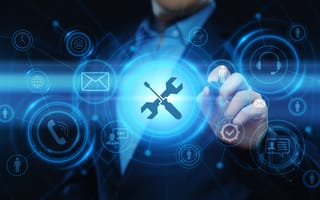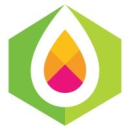In the tech industry, it should come as little surprise that the challenges customers face are frequently technical. Synchronizing data between platforms, maneuvering new product rollouts and fixing inexplicable system errors can all impact a customer’s day-to-day success — which means that the responsibilities of customer success managers (CSMs) have gradually expanded over time.
For many CSMs today, traditional customer success and advanced technical support go hand in hand.
But as organizations scale, how can customer success teams keep up with complex technical product knowledge and expansive support systems? Fortunately, many companies have embraced continuous learning, whether it’s through training curriculums for hands-on experience or creating dialogues to ask how a product functions. This support has transformed many CSMs into well-honed, Swiss Army experts with skill sets capable of slicing through roadblocks.
For Paula DeLosh, project customer success manager at Acquia, shadowing seasoned employees has made the difference in her technical abilities. “They’re always willing to let me sit in on technical calls or professional services enablement meetings,” she said. “This has helped me to get a good understanding of the customer’s digital strategy, their questions and the game plan to move forward.”
At MineralTree, Senior CSM Wyeth Lynch attributes his technical growth to firsthand experience over time. “Whether I am working with engineers on a technical escalation, product managers or a handoff from implementation, there is always something new to learn,” he said.
By combining customer-centric support skills with increased technical prowess, modern CSMs not only find themselves positioned as specialists who can empathize with their clients’ complex issues, but as valuable advisors with luminous career opportunities ahead. Built In Boston caught up with DeLosh, Lynch and two other customer success leaders to discuss their accomplished career paths so far, how they’ve managed to grow their tech knowledge bases and all the ways they continue to stay sharp in their daily work.
Acquia provides a cloud-based, digital management platform for sites built on the Drupal platform.
Briefly, tell us about your current role at Acquia and the career path that brought you here.
Currently I am a project customer success manager at Acquia. I am responsible for assisting our customers and core account managers to define next steps to mitigate risks, proactively ensure product utilization and advocate for customers with all Acquia teams — from support and products to additional enablement resources. I started at Acquia almost eight years ago as an onboarding CSM, and I have been involved with customer success for over 30 years.
How did you develop the technical skills needed to step into this role?
Here at Acquia, you can’t help but get a little technical. Taking a deep dive into Acquia Academy, our training curriculum, or using our documentation is a great starting point.
One thing in particular that helped me develop my skills is being able to continually shadow other Acquians. They’re always willing to let me sit in on technical calls or professional services enablement meetings. This has helped me to get a good understanding of the customer’s digital strategy, their questions and the game plan to move forward. Also, if I reach out to someone to get help learning internal or external tools, they are quick to help explain and show me new skills that I can keep under my toolbelt. This enables me to help even more customers moving forward.
Additionally, I attend Enable U courses weekly and all technical enablement courses offered at Acquia. I think that active listening and general curiosity has helped me to follow through to learn the technical side of my role.
If I reach out to someone to get help learning internal or external tools, they are quick to help explain and show me new skills.”
How have you continued to develop your technical skills in your current position?
Acquia offers a great deal of opportunities to continue to learn and grow as new products and technologies enter the market. One of the great things about supporting such a large group of customers and working with them throughout short-term engagements is that I am constantly learning about the different ways that customers are using technology. I also attend, host and participate in office hours and webinars, and team up with subject matter experts so that I am not only staying up to date with products, but I am also immersing myself in teams and situations where I can potentially have an impact on how others can learn as well.
Arcadia allows healthcare organizations to aggregate, analyze and act on their data.
Briefly, tell us about your current role at Arcadia and the career path that brought you here.
I’m a senior customer success manager at Arcadia. I have been on the customer success team since the team was founded in June 2021. Prior to that, I was working on the production support team as a technical team lead, and before then as an application analyst in production support. My time on our production support team is what has set me up to be able to provide not just conceptual and project management support for the customers I work with, but also technical support.
Customer success at Arcadia is the role that blends customer management with technical solutioning and support. Some days we focus on managing optimization projects and on others we may be communicating the findings of technical investigation our customer requested. The variety in the everyday work we do allows people that don’t have a background in tech to learn and improve their technical skills.
How did you develop the technical skills needed to step into this role?
My time on our production support team is where I first learned SQL, and my role was solving complex technical data and product functionality related problems. The support I received from my peers and leaders was instrumental in helping me advance my technical capabilities. At Arcadia, someone is always willing to help out with a problem or answer any question you might have.
At the time, our production support team was responsible for supporting all aspects of our product. I used this as an opportunity to become a technical expert on specific modules we offer. By putting myself in this position I was able to continuously use my technical skills — mainly SQL — to provide solutions to our customers’ problems, as well as teaching this part of the product to my peers. This type of inter-team training goes hand in hand with the mentality at Arcadia. Everyone is always looking to learn more and improve on what they already know, no matter what role they are in.
The variety in the everyday work we do allows people that don’t have a background in tech to learn and improve their technical skills.”
How have you continued to develop your technical skills in your current position?
A big part of being in customer success at Arcadia is taking the internal technical jargon and translating that to language that our customers can better understand and digest. To do this effectively, I have made it a focus of mine to continue to assist on technical work that occurs for the customers I work directly with. This can sometimes require me to write a SQL query to validate that we fixed something correctly. Other times I am reviewing data quality outputs from our connectors to ensure the data we have received meets the standards we expect.
I find it very important that I don’t get complacent with the level of my technical skills. Even though the current position that I am in requires more than just my technical skills, I always make sure that I am staying up to date on the technical specifications of our product as best I can. This has allowed me to grow in my career, and it would do the same for new and existing team members.
Agero uses software and automation to provide users with digital driver assistance, accident management and digital dispatch solutions.
Briefly, tell us about your current role at Agero and the career path that brought you here.
I’m focused on bridging the gap between internal processes, the customer-facing and sales aspects of Agero — not only within our products and technologies, but within our people operations.
Prior to Agero, I spent time working with a number of Silicon Valley companies, learning the ins and outs of the “big tech” business. At Agero, I actually started as a dispatcher, taking calls from customers needing roadside help and reaching out to tow operators to get them lined up for service. From there, I wore a number of hats: sales, service provider relations and client program implementation. Along the way, I learned the intricacies of how our technology was built and became familiar with other functions across the business, including billing and telecom. Most importantly, I developed an understanding of how our software worked for our stakeholders: clients, customers, contact center agents and service providers.
Having the technical knowledge as well as the inner workings of the people process led me to sales engineering. Many sales engineers are focused on the technical side, but what has made me successful has been the ability to balance backend tech architecture with end user impact.
How did you develop the technical skills needed to step into this role?
Sales engineering is new to Agero, so I have mostly learned on the fly and been able to figure out my role and my path organically. What has been helpful is Agero’s robust capabilities in engineering and IT. I’ve been working alongside really capable individuals and teams that have helped guide and shape the sales engineering group as a whole — and my role within it.
Ultimately, though, I believe that the learnings from the start of my career in dispatching and working with providers have been invaluable and are directly related to why I am successful today. It’s about being intimately familiar with the situation our customers are in when they have a roadside breakdown — how stressed or confused or frustrated they feel — combined with being able to understand the provider’s perspective in dealing with these time-sensitive situations, and being empathetic to our clients’ needs in running their business and protecting their consumers. All of this experience helps me stay level so that I can bring greater intention to the technological side of my job.
What has made me successful has been the ability to balance backend tech architecture with end user impact.”
How have you continued to develop your technical skills in your current position?
In order to continue developing my technical skills, I make it a point to stay close to the product roadmap. I dive into each of the product briefs and make sure I understand all the new functionality and how it’s used. When I come across items I am unfamiliar with or don’t understand how it works, I reach out and ask questions. One of the main cornerstones of the sales engineering and product functions is to ask questions like “why, why, why?”
Since sales engineering is still a relatively new function, a lot of our work is in helping others across the organization like customer success get comfortable with the processes and capabilities that we’re implementing. This includes evangelizing our way of thinking, making sure that our sales people are set up for success and learning to approach client questions and requests with a focus on understanding why they want what they want, so that we can ultimately deliver on what they truly need. We’re peeling back the layers so we can continue to streamline processes, make services and tools scalable and make things simpler and more efficient for internal teams, all while delivering on what clients expect. It’s all about balance.
MineralTree strives to simplify the accounts payable process through an automation-focused platform that makes handling invoices more efficient.
Briefly, tell us about your current role at MineralTree and the career path that brought you here.
I am currently a senior customer success manager at MineralTree working with high-value accounts. I was previously a small restaurant and hospitality business owner, but sold my business when a unique opportunity presented itself and chose customer success as my new career path. I was familiar with the customer success role from having implemented SaaS products in my business and transitioning from hospitality to account management was a natural fit.
Having been both a customer and decision maker is an advantage when speaking with executive sponsors and allows me to truly empathize with customers because I have been in their shoes. I am extremely passionate about the post-sales journey and working with my accounts to develop a long-term partnership.
How did you develop the technical skills needed to step into this role?
When I first started, MineralTree did not have the robust training program and learning management system that we have today. I spent the first couple months reading and re-reading the Knowledge Base and trying to apply what I was learning to customer Zendesk tickets in a demo environment.
A couple months into the job, I was working with a customer that was struggling with random data that was mysteriously not syncing between their enterprise resource planning (ERP) and MineralTree. I worked with the customer and technical support to diagnose the root cause of the issue and learned a lot about delta syncs and ERP concurrency limits through that process.
Another customer that I was working with in my first year was migrating from Quickbooks Desktop to Netsuite and I took on the responsibility of reimplementing them from the ground up. Working with the customer and their consultants to ensure that MineralTree and Netsuite were configured properly really accelerated my technical growth and ability to service high value accounts.
I worked with the customer and technical support to diagnose the root cause of the issue and learned a lot about delta syncs and ERP concurrency limits.”
How have you continued to develop your technical skills in your current position?
I am a genuinely curious person who likes to understand how things work, so I ask a lot of technical questions whenever possible — especially at weekly product office hours. Whether I am working with engineers on a technical escalation, product managers or a handoff from implementation, there is always something new to learn. There are also responsibilities within my role that assist with my continued technical growth. I represent customer success at weekly triage meetings, participate in configuration calls for new integrations, and attend feature and functionality request meetings with product teams. These forums are rich with opportunities to have deeper technical conversations that I can apply to my development and skill set.













